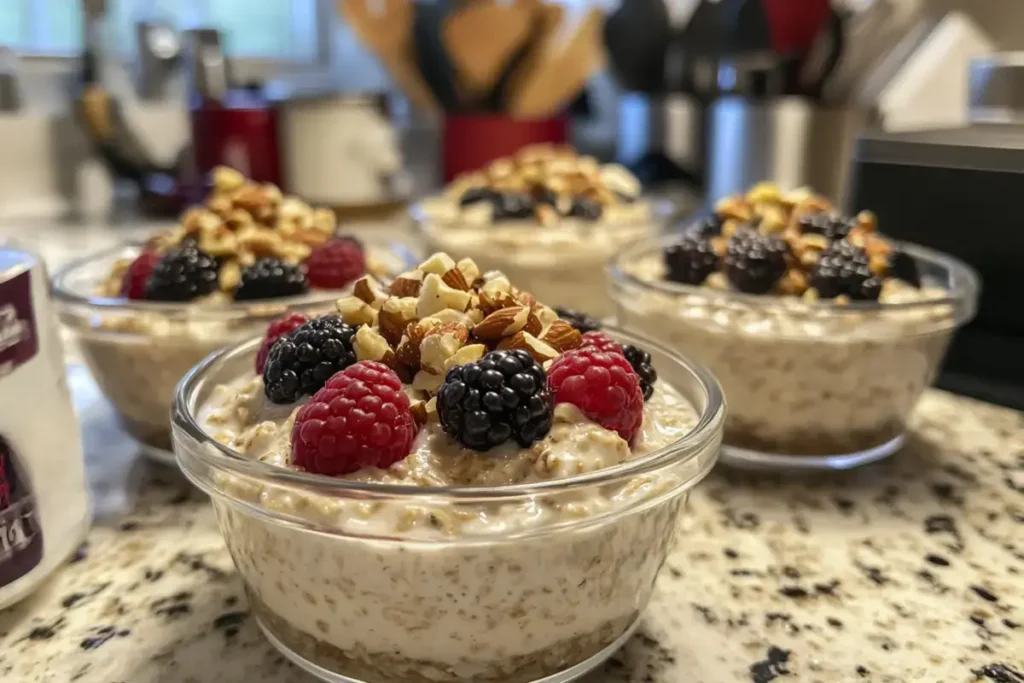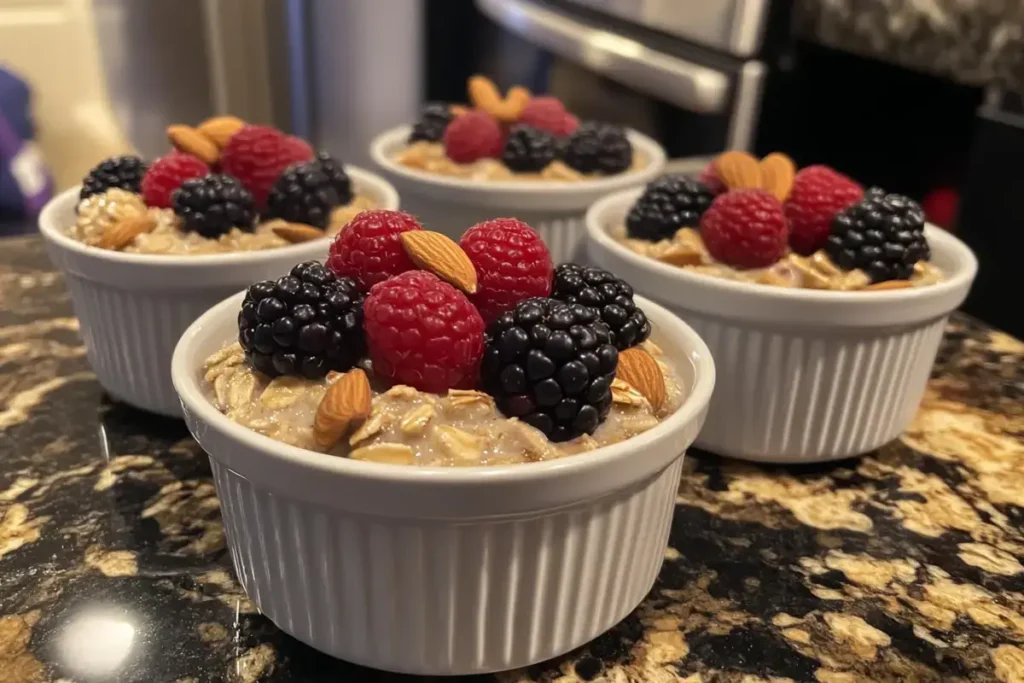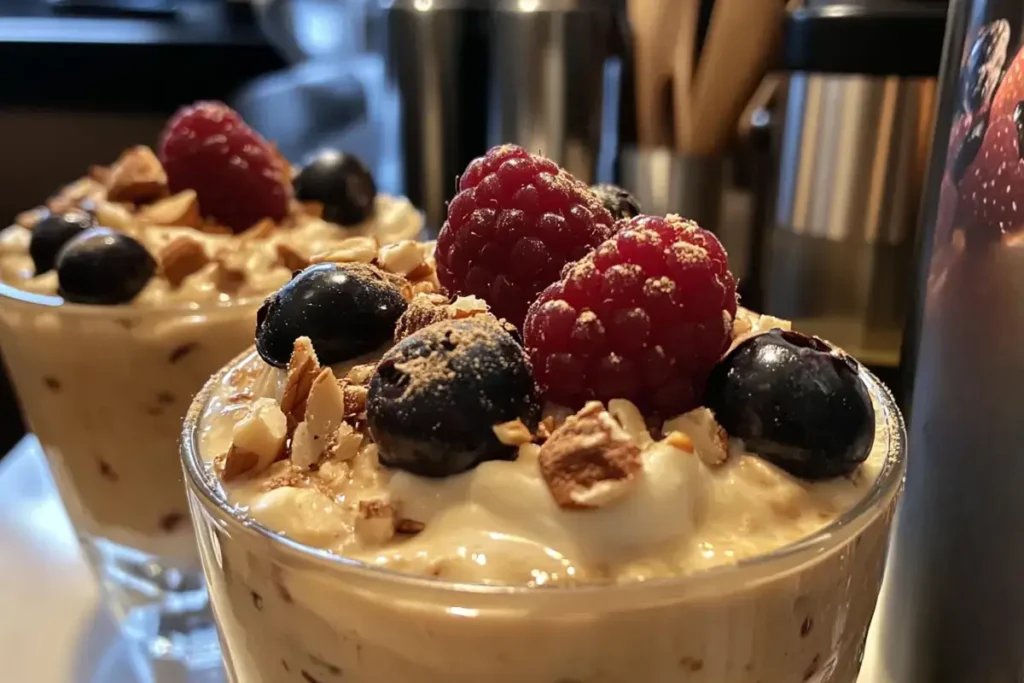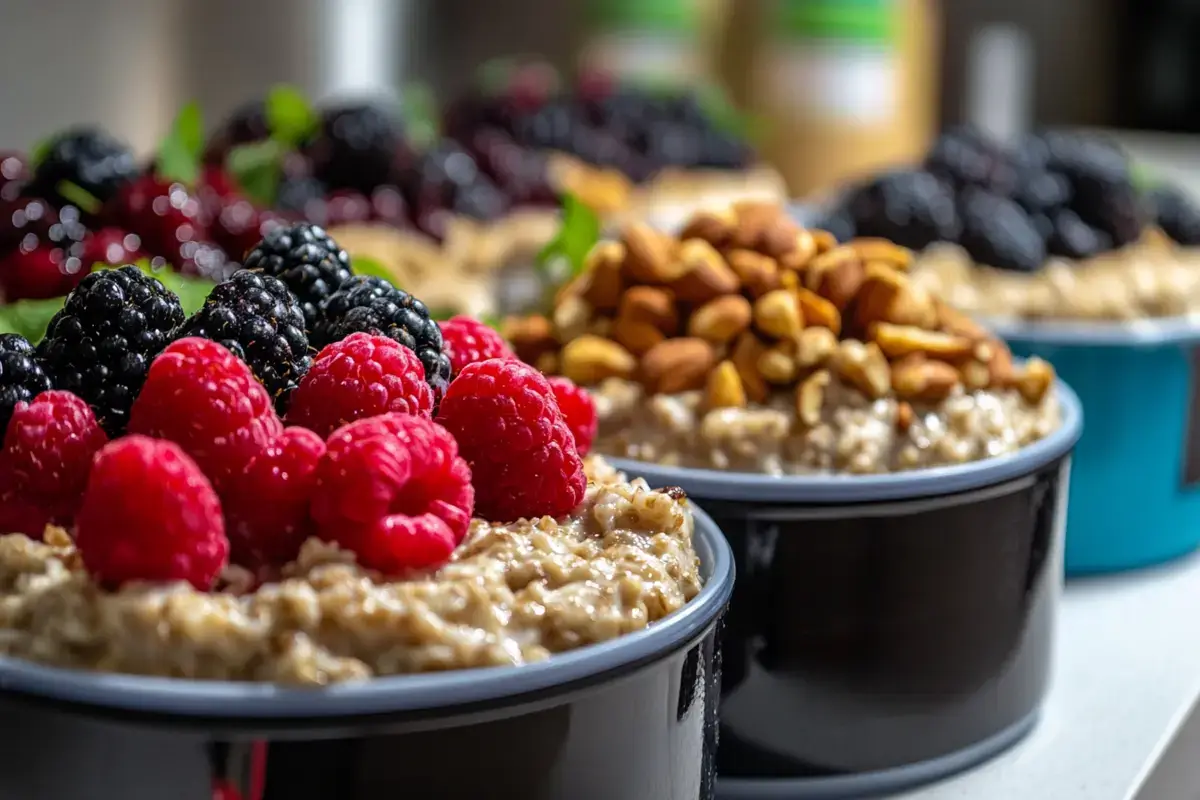Hey everyone, Jessika here from Boldy Recipes! I’ve been making overnight oats for years, and while they’re incredibly forgiving, I’ve definitely learned the hard way that some ingredients just don’t belong in that jar. Through plenty of trial and error (and some pretty disappointing breakfasts), I’ve figured out exactly what to avoid. Let me save you from the mistakes I’ve made so your overnight oats turn out perfect every time.
Skip the Quick Oats and Steel-Cut Oats
Quick oats or instant oats are the worst choice for overnight oats. They’re already partially cooked and broken down, so after soaking overnight, they turn into a gluey, paste-like mess with zero texture. It’s genuinely unpleasant.
On the flip side, steel-cut oats stay rock hard even after 12 hours of soaking. They need actual cooking to become edible. I learned this the expensive way when I bought a big container thinking they’d work they absolutely don’t. Stick with old-fashioned rolled oats only.

Don’t Add Crunchy Toppings the Night Before
This seems obvious once you think about it, but granola, nuts, and crispy cereal shouldn’t go in overnight. I used to prep everything at once for convenience, but soggy granola and soft almonds are sad, limp versions of themselves by morning.
Add these crunchy elements right before eating. I keep small containers of toppings in my pantry and sprinkle them on when I’m ready to eat. The textural contrast between creamy oats and crunchy toppings is half the appeal don’t lose it.
Fresh Berries Turn Mushy
I love berries in my overnight oats, but adding fresh berries the night before creates problems. Strawberries and raspberries especially break down, releasing excess moisture that makes your oats watery and creates an odd, sometimes slimy texture.
Blueberries hold up slightly better but still become soft and wrinkled. Save fresh berries for morning, or if you want fruit flavor overnight, use freeze-dried berries (they rehydrate perfectly) or mashed banana, which actually improves the texture.
Avoid Excessive Sweeteners
It’s tempting to make overnight oats dessert-like, but adding too much sugar, honey, or maple syrup (more than 1-2 tablespoons) turns a healthy breakfast into a sugar bomb. You’ll spike your blood sugar and crash before lunch.
I’ve also found that artificial sweeteners can develop off-flavors overnight. Some develop a bitter or metallic taste after sitting for hours. If you use them, start with less than you think you need.
Say No to Raw Flour or Protein Powders (Usually)
Raw flour-based ingredients shouldn’t go in overnight oats. That means no raw cake mix, no unbaked protein balls mixed in, and no regular all-purpose flour as a thickener. Raw flour can harbor bacteria and tastes chalky and unpleasant.
Most protein powders don’t work well either. They often clump, create a gritty texture, or absorb too much liquid, leaving you with thick, pasty oats. If you want added protein, Greek yogurt or a spoonful of nut butter works much better.

Don’t Use Only Water
Technically you can make overnight oats with just water, but they’ll be bland and disappointing. Water doesn’t add any creaminess, richness, or flavor. After soaking, you end up with something that tastes like wet cardboard with toppings.
Use milk (dairy or non-dairy), or at minimum, half milk and half water. The small cost difference is worth it for actually enjoyable oats.
Skip the Delicate Fresh Herbs
I’m all for experimenting, but fresh herbs like basil or cilantro have no place in overnight oats. I tried a “savory overnight oats” trend once with fresh herbs it was terrible. The herbs turn slimy and develop bitter flavors overnight.
If you want herbal notes, stick with dried spices like cinnamon, cardamom, or vanilla extract.
Don’t Overfill Your Container
Leaving no headroom in your jar is a mistake I made constantly at first. Oats expand as they absorb liquid, and if your jar is too full, you’ll have overflow mess in your refrigerator.
Fill containers only two-thirds full to allow for expansion. This also gives you room to stir or shake before eating.
Avoid Dairy If Sitting Over 24 Hours
Overnight oats with dairy shouldn’t sit longer than 4-5 days in the refrigerator. I don’t recommend making them for the entire week if using regular milk or yogurt. The dairy can develop off-flavors or spoil, especially if your fridge isn’t consistently cold.
Use non-dairy milk if you’re meal-prepping for longer periods.

FAQs
Q: Can I add eggs to overnight oats for extra protein?
A: No, raw eggs shouldn’t be added to cold overnight oats due to food safety concerns. Use Greek yogurt for protein instead.
Q: Is it okay to add coconut oil or butter?
A: They’ll solidify in the cold and create an unpleasant waxy texture. Stick with nut butters if you want healthy fats.
Q: Can I use expired oats?
A: Check for rancid smell first. Oats can go bad, especially if stored improperly. When in doubt, throw them out.
Q: What about adding coffee or tea?
A: Cold brew coffee works great! Hot coffee or tea cools down overnight but can work. Just count it toward your liquid ratio.

